Types of Construction Contracts – Which Is Right for You?
When you plan to build your dream home, one of the first and most important decisions is choosing the right type of construction contract.
It decides how much control you’ll have over the project, who handles the materials, how payments are made, and how risks are shared.
Let’s break down the main types of construction contracts in simple language — along with their pros, cons, and ideal use cases.
1. Turnkey Contract
In a Turnkey Contract, the construction company takes complete responsibility — from buying materials to finishing and handing over the ready house.
You just approve the design and make stage-wise payments.
How It Works
Builder provides design, material, labor, and supervision.
The client pays a fixed total cost per sq.ft. before construction begins.
After completion, the key is handed over — “turn the key and move in.”
Advantages
Stress-free and time-saving.
Fixed price — no surprise costs.
Builder ensures material quality and timely completion.
Ideal for busy professionals or NRI clients.
Disadvantages
Less control over brand of materials unless clearly mentioned.
Any design change later may cost extra.
Best For:
Homeowners who want a complete, hassle-free solution and trust the builder’s capability.
2. Labour Contract
In a Labour Contract, the homeowner buys all materials while the builder provides only labor and technical supervision.
How It Works
You purchase cement, steel, bricks, tiles, etc.
The builder charges a labour rate per sq.ft.
Ideal if you want control over materials and have time to monitor.
Advantages
Full control over material brand and cost.
Transparent — you know exactly what goes into your house.
Can save money if you manage materials smartly.
Disadvantages
Very time-consuming — you must track materials, delivery, and wastage.
Mismanagement may lead to delays or overspending.
Quality may drop if supervision is poor.
Best For:
Clients who are hands-on, cost-conscious, and available for regular site visits.
3. Cost-Plus Contract
In a Cost-Plus Contract, the builder charges actual construction cost + a fixed profit margin (or percentage).
How It Works
Client pays for all materials, labour, and subcontractor bills.
Builder adds a service fee (like 10–15%) as profit.
Actual bills are shared transparently.
Advantages
Full transparency of real costs.
Flexible — suitable for custom designs or high-end projects.
Adjusts easily to design or material changes.
Disadvantages
Final cost is not fixed — it can increase based on real expenses.
Needs strong trust between client and builder.
Best For:
Projects where design changes are expected or quality customization is the priority.
4. Item Rate Contract
Here, the builder quotes rates for each item of work (excavation, brickwork, plastering, painting, etc.).
Payment is made as per actual work completed.
Advantages
Flexible if quantities vary.
Good for partial or renovation projects.
Disadvantages
Complex to track and verify.
Requires technical knowledge to check bills.
Best For:
Renovation or small projects where work quantity can change.
5. Lump Sum (Fixed Price) Contract
A Lump Sum Contract is where the builder agrees to complete the entire project for a fixed total cost based on approved plans.
Advantages
Predictable — you know your full cost upfront.
Good for standard, well-defined house designs.
Disadvantages
Less flexibility for mid-way changes.
Builders may compromise on quality if material prices rise later.
Best For:
Clients with clear, finalized plans and fixed budgets.
Comparison Table
| Type of Contract | Who Buys Materials | Price Type | Control Level | Ideal For |
|---|---|---|---|---|
| Turnkey | Builder | Fixed | Low | Busy homeowners |
| Labour | Owner | Variable | High | Cost-conscious clients |
| Cost-Plus | Owner | Variable | High | Custom / luxury homes |
| Item Rate | Shared | Variable | Medium | Small works |
| Lump Sum | Builder | Fixed | Medium | Fixed-budget projects |
Tips Before Signing Any Construction Contract
Always get a written agreement — avoid verbal promises.
Clearly mention:
Material brands & grades
Payment schedule & penalties
Completion timeline
Discuss extra charges for design or material changes.
Prefer contracts with stage-wise payments linked to progress.
Read every clause carefully — or have a civil engineer review it.
Final Thoughts
Choosing the right construction contract depends on your budget, time, and involvement level.
If you want peace of mind → Go for Turnkey.
If you want control and savings → Choose Labour Contract.
If you want flexibility and transparency → Go for Cost-Plus.
Whichever you choose, ensure everything is clearly mentioned in writing to avoid misunderstandings later.
